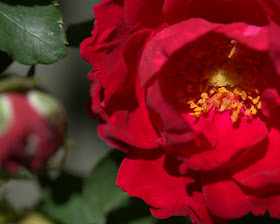 Butterfly's Child by Angela Davis-Gardner
Butterfly's Child by Angela Davis-GardnerCopyright 2011
Dial Press - Fiction/Historical
350 pp.
Reason for Reading: The storyline of Butterfly's Child, a "What if?" continuation of the tale that became the opera Madama Butterfly, interested me, so I asked to join in on the TLC tour. I have not seen the opera.
Brief summary:
After his mother's tragic death, Benji is taken to the United States by his biological father, Lt. Benjamin Franklin Pinkerton, and Frank's wife, Kate, to live on their farm in Illinois. To avoid criticism, the Pinkertons say they rescued Benji out of the kindness of their hearts but conceal the fact that he is Frank's biological child. Neither of the Pinkertons really want to take Benji on but they are pressed to fulfill Frank's parental obligation by Sharpless, the man who introduced Frank to "Butterfly", Benji's mother.
Benji is old enough to understand and remember his mother's death and the fact that Butterfly told him Frank was his "Papa-san", but he learns to keep what he knows a secret. When the truth comes out, Benji is forced to leave home. He works his way west, from Denver to San Francisco and then to Nagasaki, Japan. What will Benji discover when he searches for his mother's family in Nagasaki?
What I liked about Butterfly's Child:
Butterfly's Child is a wildly original continuation of the original story that delves into the harsh realities of prejudice against a child of mixed parentage and eventually leads to a satisfying quest of identity. The author has kindly provided a summary of the opera's three acts, so it doesn't matter if you haven't seen or heard the opera; you'll still understand where the Madama Butterfly story ends and Butterfly's Child begins.
The setting is beautifully described with an authentic 19th century period feel, brilliantly detailed, and the depth of characterization is truly marvelous. It's a testament to the author's fine characterization that I can still rattle back the entire story and name most of the characters, a week after I finished. The characters are so three-dimensional that I still want to thank those who were kind to Benji and kick the mean ones across the pasture, a week after closing the book.
But, it's the characters who are kind to Benji who make the story a rich experience. Keast, a veterinarian who helps teach Benji English, among other things, is by far my favorite character. Eventually, another character becomes a surrogate father to Benji, as well. It's those secondary (but important) characters and the quest, along with the vivid detail, that carry the book, in my humble opinion.
I also loved the fact that the author clearly knows Japan and did her research well, although there was one thing about the story that did not work from the standpoint of Japanese tradition. But, we'll get to that in a bit and I can't be specific, unfortunately.
A favorite scene:
I loved the way the author deftly revealed her characters' strengths, weaknesses and motivations through the use of carefully-crafted scenes. One of my favorite scenes takes place when Kate and Frank are still new to the farm and Kate is learning how to be a farm wife from her live-in mother-in-law. Tired of feeling that she doesn't measure up, Kate misleads her mother-in-law into believing that she knows how to can food and eventually is left alone to finish up the job. The disastrous consequences of Kate's deceit and the way Frank and his mother react are revealing in many ways.
What I disliked about Butterfly's Child:
Most of the things I disliked about Butterfly's Child are, sadly, spoilers. But, I can tell you a little bit about them in generalities without ruining the storyline and I will say that the two characters I truly disliked were so weak and spiteful that I kept hoping they'd change for the better. I was disappointed that they did not. On the plus side, they were consistent in their characterization; and, the way they declined fit the mold of the kind of dramatic storytelling one sees on the stage. As much as they were unkind, they paid in the end as their character flaws disastrously turned inward and tore them apart.
Another thing that drove me nuts was the mistreatment of cats. Seriously! Benji loves his cats -- both "Rice Ball" in Japan and the marmalade cat who helps him adjust to his new life on the farm. But, there are other characters who are cruel to cats. In an early scene, Butterfly throws a rock at Rice Ball and calls him "unlucky". Late in the book, Kate squeezes a kitten so hard that it claws her to get away. And, the worst thing of all . . . I can't share. Darn. I might have been okay with the use of mistreatment to reveal character, but I felt like the most heinous cat cruelty of all was simply shrugged off in more than one way and that was simply not tolerable. This took my opinion of the book down a notch; the author could have used those scenes to say it's wrong to mistreat animals, but she did not.
The final disappointment was a change from the original story that I found difficult to buy into because it doesn't fit my understanding of the Japanese concept of honor. Again, to mention it would be to ruin a plot point, so I won't. I also thought Benji lost some consistency in characterization, in the last third of the book -- although it could be argued that he was a young man and young men are not necessarily consistent in their behavior as they're still finding their way. And, then the book ended abruptly, which kind of stunned me. I don't mind if things aren't fully wrapped up in a novel but there was a bit too much left up in the air, in this case.
Note on the cover blurb vs. contents:
The cover blurb says Benji is three when the Pinkertons take him to America but at the beginning of the book it says Butterfly has waited 4 springs for Pinkerton's return and Benji says in the book that he was five when he came to the U.S. Benji has very vivid and complete memories -- more like what I'd expect of someone who was five at the beginning of the story than a younger child. I checked online, though, and found that what used to be known as "infant amnesia" has been proven a myth. Interesting, although I'm not shocked, since my first memory involves a high-pitched scream and a dark, grey, marbleized floor coming up to greet me. I fell out of my high chair at 11 months. You really wanted to know that, right?
Recommendation:
3.5/5 - A truly original continuation of a well-known story with tremendously vivid characterization and lush description. The last 1/4 of the book was satisfying in many ways, although I thought the author lost the thread of characterization with Benji a bit and included a change that digresses too far from what I have read about the Japanese to be palatable. Also, I thought the ending was too abrupt. I would have liked to see a bit more wrap-up.
Don't be fooled by the slightly above-average rating. While there are things I disliked about the book, Butterfly's Child is a fascinating, very original story and there is much to discuss. It would make an excellent book group selection. Butterfly's Child is also very much Angela Davis-Gardner's own tale, rather than a "retelling" or even a strictly-derived continuation; there is a surprise twist that I absolutely did not see coming.
As to the bit that took the reading down a notch in my perspective . . . Obviously, I'm sensitive to cat cruelty. All of my cats have been rescues and had a bad start in life but have brought more joy to us than I can ever fully describe. I have a feeling the scenes I found disturbing won't jump out at a lot of people the way they did to me.
I had fun sipping tea from my Kyoto Starbucks mug, while I was reading Butterfly's Child. Isn't it pretty? I wish I'd bought more than two (one for me; one to give to a friend). I don't think I'll be making it back to Kyoto, anytime soon!
©2012 Nancy Horner. All rights reserved. If you are reading this post at a site other than Bookfoolery and Babble or its RSS feed, you are reading a stolen feed. Email bookfoolery@gmail.com for written permission to reproduce text or photos.
 Okay, maybe the Earth will not blow up into a million-squillion tiny particles because I did, in fact, confuse Tuesday with the last day of April. I can pretend it's still April if I want to. In fact, I can change the post date and it will magically become April. Ha! At any rate, my point is that April was National Poetry Month (and still is, in my messed-up mind).
Okay, maybe the Earth will not blow up into a million-squillion tiny particles because I did, in fact, confuse Tuesday with the last day of April. I can pretend it's still April if I want to. In fact, I can change the post date and it will magically become April. Ha! At any rate, my point is that April was National Poetry Month (and still is, in my messed-up mind).

























